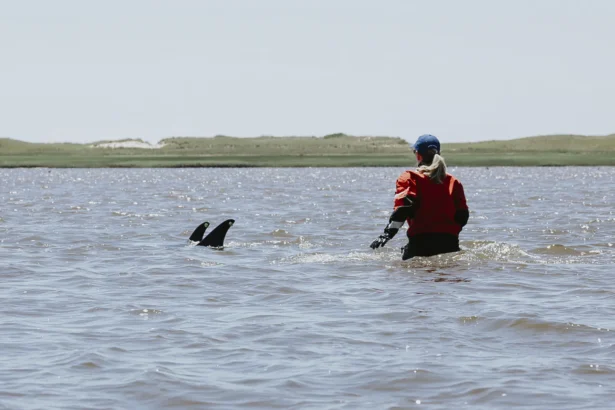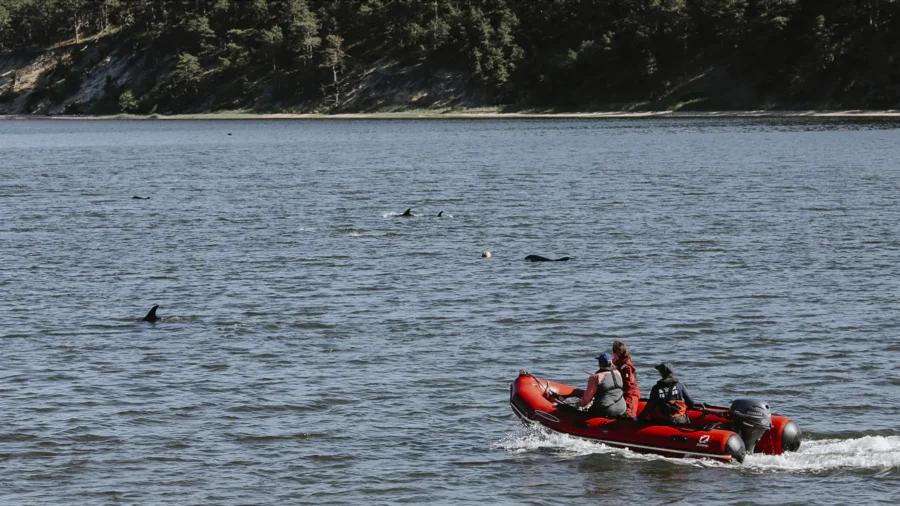An intensive rescue effort was underway after more than 100 Atlantic white-sided dolphins were stranded on a beach in Massachusetts on June 28.
The International Fund for Animal Welfare (IFAW) reported that the dolphins became stranded off Cape Cod near the town of Wellfleet. At least 10 of the animals died before the arrival of the crews, the organization reported.
The IFAW identified The Gut or Great Island at the Herring River in Massachusetts as the incident’s epicenter after the organization posted about the rescue on social media. The organization said that the area was hard to access due to the presence of dangerous mud.
The group described the incident as the “largest single mass stranding event” in its over 25-year history.
“Our valiant marine mammal rescue team is in the midst of what may be the largest single mass stranding event in our response history. 125 Atlantic white-sided dolphins stranded this morning in Wellfleet in an area called the Herring River Gut—the epicenter of mass strandings,” IFAW posted on X, formerly known as Twitter.
Some of the dolphins were partially submerged in the water while others had come out of the water completely.
More than 120 people comprised of IFAW staff and volunteers attended the scene to herd the dolphins back to safety.

“At least 25 IFAW staff and 100 volunteers are on scene attempting to use three small vessels and underwater pingers (noise) to herd the dolphins back out to deeper waters,” the organization said.
According to the group, volunteers were in shallow waters due to the low tide at around 11:20 a.m. local time, and they attempted to herd the dolphins back on foot.
“They used the rising tide to refloat the animals, and now the tide is in their favor as they work with partner organizations and volunteers to herd the animals out of the estuary and into deeper waters offshore,” the organization said.
According to IFAW, it is not clear what caused the dolphins to become stranded.
“There is no set reason for why these dolphins strand. Cape Cod is a global stranding hotspot due to the curvature of our shores and the fluctuation of our tides,” said Stacey Hedman, communications director for the group.
In addition to the efforts of volunteers, IFAW was supported by other organizations, including the Whale and Dolphin Conservation, the Center for Coastal Studies, AmeriCorps of Cape Cod, and the New England Aquarium.
Efforts to keep the animals away from shallow water continued into the following day.
“It was a 12-hour exhausting response in the unrelenting sun, but the team was able to overcome the various challenges and give the dolphins their best chance at survival,” according to Misty Niemeyer, the organization’s stranding coordinator.
The Associated Press contributed to this article.


